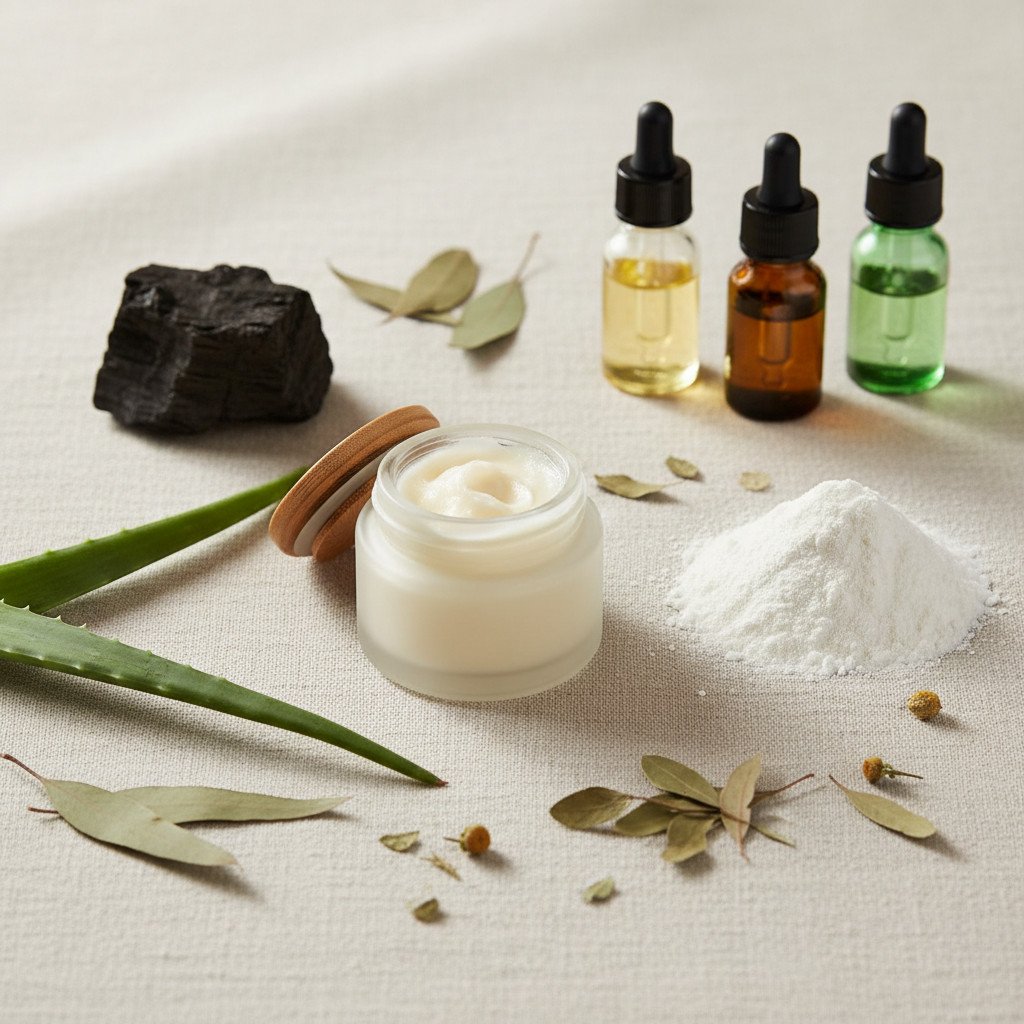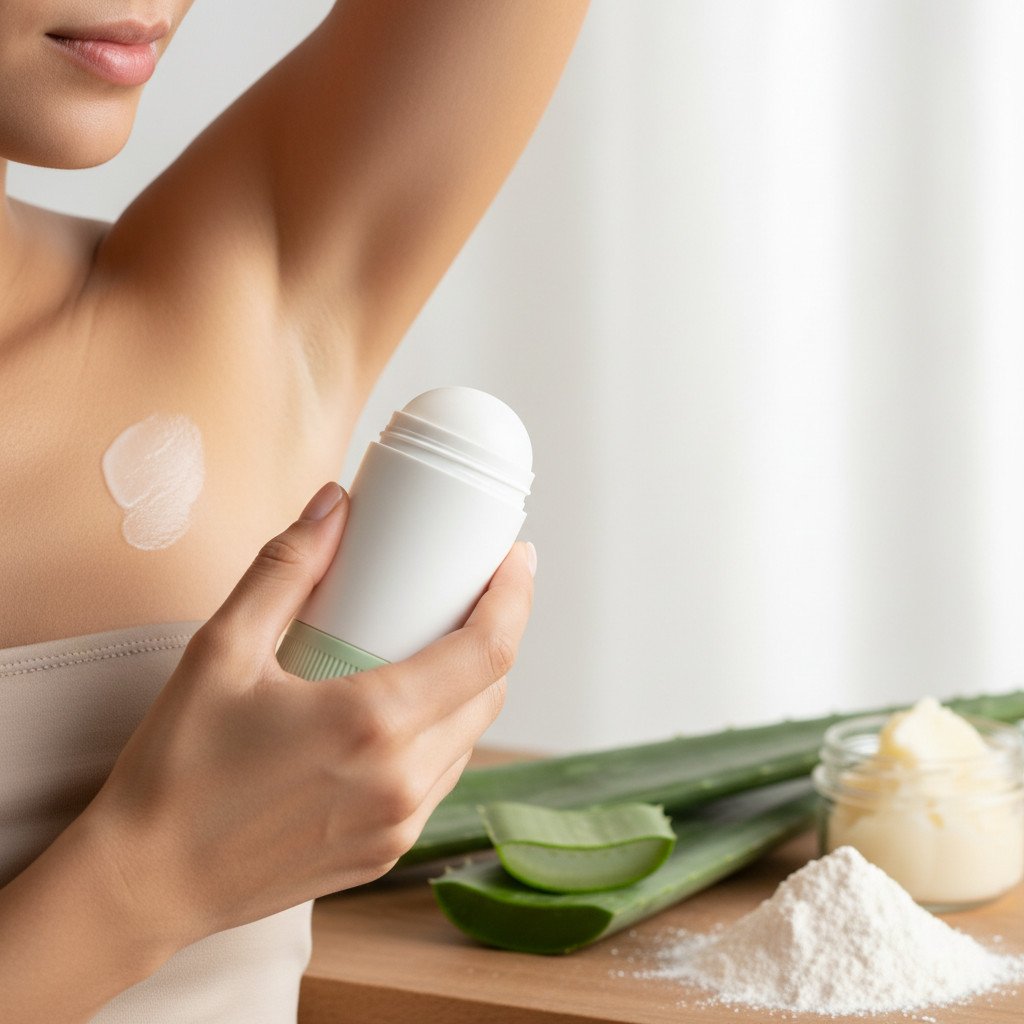More people are switching to aluminum-free natural deodorants as they seek cleaner personal care. The trend taps into a desire for gentle, transparent ingredients and simpler routines. Because aluminum blocks sweat while natural options focus on odor, many report healthier skin.
However, switching can feel uncertain at first, and people want clear guidance. In this guide we tested 17 aluminum-free sticks, creams, and sprays, and we describe how plant-based absorbers, probiotic ingredients, baking-soda-free blends, and refillable packaging affect performance, scent, skin comfort, and environmental impact; therefore we share practical tips for transitioning, notes on longevity, and cautions about irritation, while also explaining why many users find they smell better and why dermatologists say aluminum in antiperspirant is not a proven health risk for most people. We include product-fit notes from consumer testers, ingredient breakdowns, and realistic expectations for workouts and shift work, plus refill strategies for busy lives now.
Benefits of Aluminum-Free Natural Deodorants
Switching to aluminum-free natural deodorants often improves skin comfort and reduces exposure to synthetic preservatives. Many people choose these options for gentler care, because plant-based absorbers and essential oils replace harsh chemicals. As a result, natural skin care routines feel simpler and more transparent.

- Skin friendly and soothing: Ingredients like shea butter, aloe vera, and arrowroot calm irritation. Therefore people with sensitive skin often report less redness and fewer bumps.
- Odor control without aluminum: Natural deodorants target odor using probiotics, charcoal, and botanical extracts. However they do not stop sweat the way antiperspirants do, so expect a brief transition period.
- Fewer synthetic additives: Many formulas are free of parabens and phthalates, so you get chemical-free deodorants that align with toxin-free personal care goals. For ingredient safety checks, see the Environmental Working Group.
- Better ingredient transparency: Brands list simple ingredient decks, which helps shoppers make informed decisions about natural deodorant and vegan deodorant options.
- Environmentally friendlier packaging: Many options use refillable cases or compostable refills, which reduces waste and supports sustainable personal care.
For context on antiperspirant safety, read expert guidance from the Mayo Clinic and the National Cancer Institute.
Comparison: Aluminum-Free Natural Deodorants vs Conventional Deodorants
| Factor | Aluminum-Free Natural Deodorants | Conventional Deodorants |
|---|---|---|
| Primary ingredients | Plant extracts, arrowroot, baking-soda-free bases, charcoal, probiotics, essential oils | Aluminum salts, synthetic fragrances, parabens, stabilizers |
| Additives and preservatives | Often minimal; many brands avoid parabens and phthalates | More synthetic preservatives and stabilizers |
| Health impact | Lower exposure to synthetic chemicals; gentler long-term profile | Blocks sweat; contains more synthetic additives |
| Skin sensitivity | Better for sensitive skin when baking-soda-free; soothing botanicals | Higher risk of irritation, especially with baking soda and fragrance |
| Odor control mechanism | Neutralizes bacteria with botanical antimicrobials, probiotics, charcoal | Masks or reduces odor by blocking sweat and trapping bacteria |
| Sweat prevention | Does not prevent sweating; focuses on odor control | Reduces sweating significantly by blocking pores |
| Longevity | Varies; many last 8-32 hours; some need reapplication after workouts | Often longer lasting for sweat-heavy activities |
| Transition period | Expect 1–4 weeks as microbiome rebalances | No transition required |
| Environmental footprint | Often lower; refillable cases and compostable refills available | More single-use plastic; higher chemical load |
| Packaging options | Refillable metal cases, compostable refills, recyclable tubs | Spray cans, plastic sticks, many nonrefillable formats |
| Ingredient transparency | Brands usually list clear, simple ingredient decks | Ingredients often proprietary or less transparent |
| Typical cost | Mid to high, but refills cut lifetime cost | Wide range; many low-cost mass-market options |
| Best for | Health-conscious users, sensitive skin, eco-minded shoppers | Users who prioritize sweat control and long-lasting wear |
Common Myths About Aluminum-Free Natural Deodorants
Will a natural deodorant leave you smelling?
Many aluminum-free options control odor well. Our tests covered 17 products. Several lasted 24 hours or more. However performance varies by formula and activity level. For context on antiperspirant safety, see expert guidance from the Mayo Clinic.
Will switching give me rashes?
Some formulas irritate because of baking soda. Conversely baking-soda-free blends and soothing botanicals reduce irritation. As a result, choose sensitive-skin formulas and patch-test new products.
Facts About Natural Deodorant and Skin Health
Transition period is normal: Expect 1 to 4 weeks as your skin microbiome rebalances. During this time you may sweat more, but odor often improves.
Ingredient transparency matters: Brands often list simpler ingredients. For ingredient safety checks, consult the Environmental Working Group.
Sweat versus odor: Aluminum-free deodorants do not block sweat. Instead they neutralize odor with charcoal, probiotics, and botanical antimicrobials.
Performance varies: Some products lasted beyond 32 hours in testing. Others required reapplication after heavy workouts. Therefore pick based on your activity level.
Practical tip: If you have sensitive skin, choose baking-soda-free, fragrance-light formulas and use a small patch test first.

Choosing aluminum-free natural deodorants offers gentler skin care, clearer ingredients, and effective odor control. Because these products avoid aluminum and many synthetic additives, they reduce exposure to controversial chemicals. As a result, many testers reported less irritation and fresher confidence.
We tested 17 products and found varied performance. Several lasted 24 hours or more, and a few lasted beyond 32 hours. However, some formulas need reapplication after heavy exercise. Therefore choose based on activity level and skin sensitivity.
Practical tips: expect a one to four week transition. Pick baking-soda-free options for sensitive skin. Prefer refillable packaging to reduce waste. Moreover, track how a formula works for you and patch-test new products.
EMP0 helps businesses grow with AI and automation. They offer smart tools for efficient scaling. Learn more at EMP0’s main page, read practical pieces at EMP0 articles, or explore automation with N8N creators. Because smart choices matter, consider swapping to aluminum-free natural deodorants today.
Frequently Asked Questions (FAQs)
Are aluminum-free natural deodorants effective at controlling odor?
Yes. Aluminum-free natural deodorants neutralize odor using botanical antimicrobials, charcoal, and probiotics. Our tests of 17 products showed many lasted 24 hours or longer. However performance varies by formula and activity level. Therefore pick options that match your routine and reapply after heavy workouts.
Are aluminum-free natural deodorants safe to use long term?
Yes for most people. Major health agencies find no clear link between antiperspirant aluminum and cancer. In contrast, aluminum-free deodorants reduce exposure to synthetic additives. As a result, they suit consumers seeking chemical-free deodorants and toxin-free personal care.
How do I switch from antiperspirant to natural deodorant?
Expect a one to four week transition period. During this time your skin microbiome rebalances and you may sweat more. To ease the switch, shower regularly, exfoliate gently, and try a detox mask if needed. Also patch-test new formulas for irritation.
What makes aluminum-free deodorant different from conventional deodorant?
Natural deodorants focus on odor control rather than blocking sweat. They use plant extracts, arrowroot, and essential oils. Conventional products use aluminum salts to close pores and reduce sweat. Consequently choose based on whether you want sweat control or gentler skin care.
Are aluminum-free natural deodorants good for sensitive skin?
Often yes. Baking-soda-free and fragrance-light formulas reduce irritation. Moreover soothing ingredients like aloe and shea butter calm skin. If you are sensitive, choose hypoallergenic blends and perform a patch test first.

